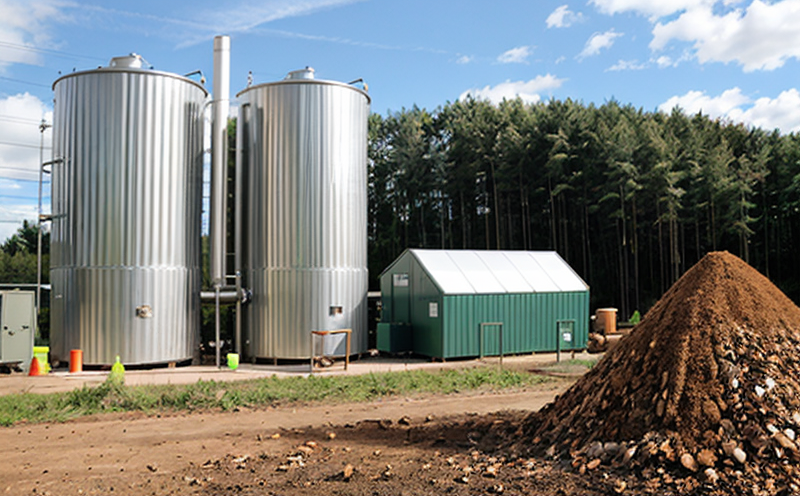ASTM D8193 Chlorine and Fluorine Content in Waste Fuels
The ASTM D8193 standard test method is used to measure the chlorine and fluorine content in waste fuels. This service plays a critical role in ensuring that waste materials can be effectively converted into energy through waste-to-energy processes, which are increasingly important as industries seek sustainable solutions for managing solid wastes.
This testing is essential for several reasons. Firstly, it allows facilities to accurately determine the composition of their waste streams, ensuring that only suitable materials are used in waste-to-energy conversion processes. Secondly, by monitoring chlorine and fluorine content, operators can predict potential issues such as corrosion or fouling within the energy generation equipment. Lastly, this test is crucial for compliance with environmental regulations that mandate the safe handling and disposal of hazardous materials.
The ASTM D8193 method involves several steps to ensure accurate measurement. Samples are first prepared by drying them at a specific temperature to remove moisture. The sample is then placed into a combustion chamber where it undergoes complete combustion in an oxygen-rich environment. This process releases the chlorine and fluorine compounds from the waste fuel, which are subsequently captured and quantified using gas chromatography.
The precision of this method ensures reliable data that can be used to optimize waste-to-energy processes. By understanding the exact amounts of chlorine and fluorine present in a given batch of waste fuel, operators can fine-tune combustion parameters for maximum efficiency and minimal emissions. This is particularly important when dealing with mixed waste streams, as different types of waste materials contribute varying levels of these elements.
One key challenge in implementing ASTM D8193 lies in the accurate preparation of samples. Moisture content must be controlled to ensure consistent results across multiple tests. Additionally, proper calibration and maintenance of the gas chromatography equipment are crucial for obtaining reliable data. Regular audits of the testing process by independent laboratories can help maintain accuracy over time.
In summary, ASTM D8193 is an indispensable tool in the waste-to-energy industry, providing critical insights into the composition of waste fuels that directly impact operational efficiency and environmental compliance. By leveraging this standard test method, facilities can ensure they are making informed decisions about which waste materials to convert into energy, thereby contributing positively to sustainability goals.
Why It Matters
The importance of ASTM D8193 testing cannot be overstated in the context of waste-to-energy conversion and biomass processing. Accurate measurement of chlorine and fluorine content is essential for several reasons:
Evaluation of waste fuel suitability: Ensures that only appropriate materials are used, optimizing energy conversion processes.
Prediction of operational challenges: Helps identify potential issues such as corrosion or fouling within the equipment.
Enhanced compliance with regulations: Ensures adherence to environmental standards regarding hazardous waste management.
The precision and reliability provided by ASTM D8193 testing are vital for maintaining operational efficiency, reducing costs, and ensuring regulatory compliance. This service supports the broader goal of sustainable resource utilization in the energy sector.
Industry Applications
Bioenergy production facilities: Accurate measurement is crucial for optimizing fuel quality and reducing operational costs.
Waste management companies: Ensures that only suitable waste materials are processed, enhancing efficiency and sustainability.
Environmental consulting firms: Provides data to support environmental impact assessments and regulatory compliance studies.
The ASTM D8193 test is widely used across various sectors involved in the conversion of waste into energy. It supports decision-making processes by providing precise information about the composition of waste fuels, which can significantly influence operational strategies and outcomes.
Quality and Reliability Assurance
Regular calibration: Ensures that gas chromatography equipment remains accurate over time.
Sample preparation consistency: Maintains uniform moisture content in samples to ensure consistent results.
Independent audits: Provides additional layers of assurance by verifying the accuracy and precision of testing methods.
To uphold high standards, facilities should implement rigorous quality control measures. Regular calibration of equipment is essential, as it helps maintain accurate measurements throughout the testing process. Consistent sample preparation ensures that each test yields reliable data, while independent audits offer an additional layer of verification and trustworthiness.





